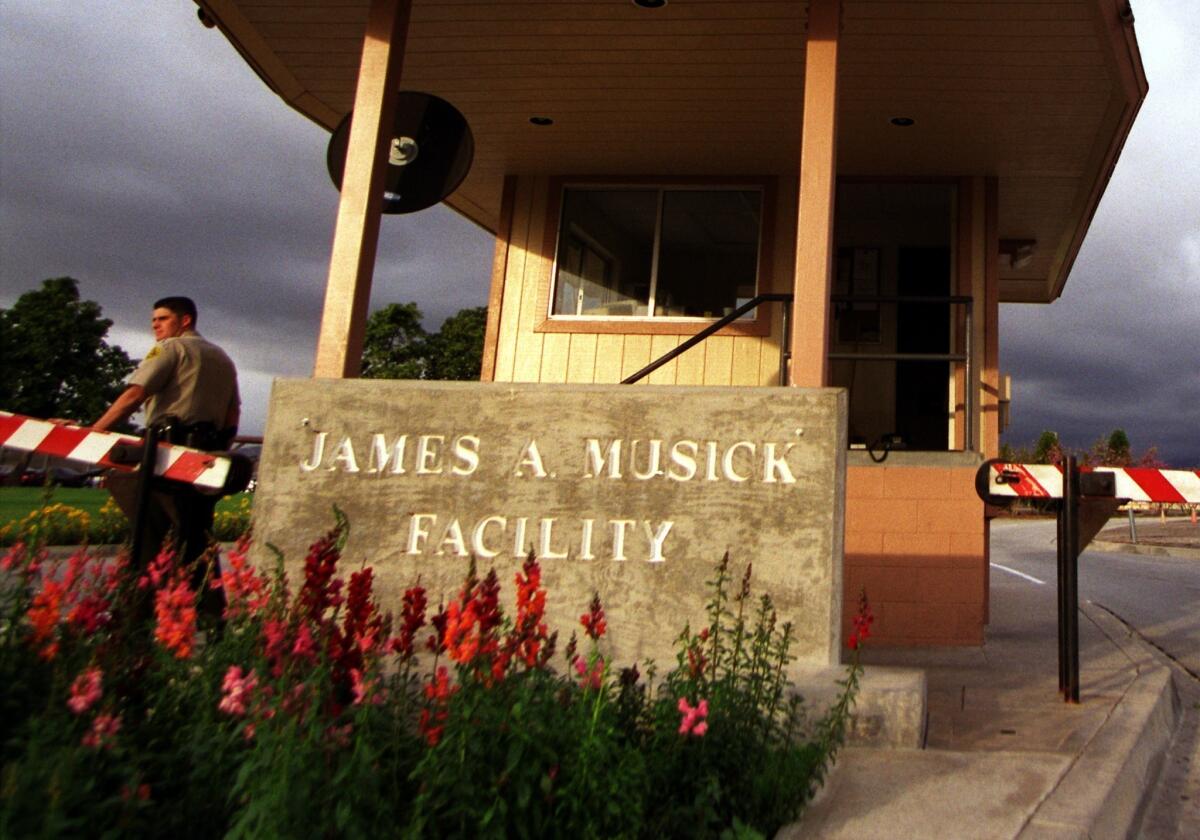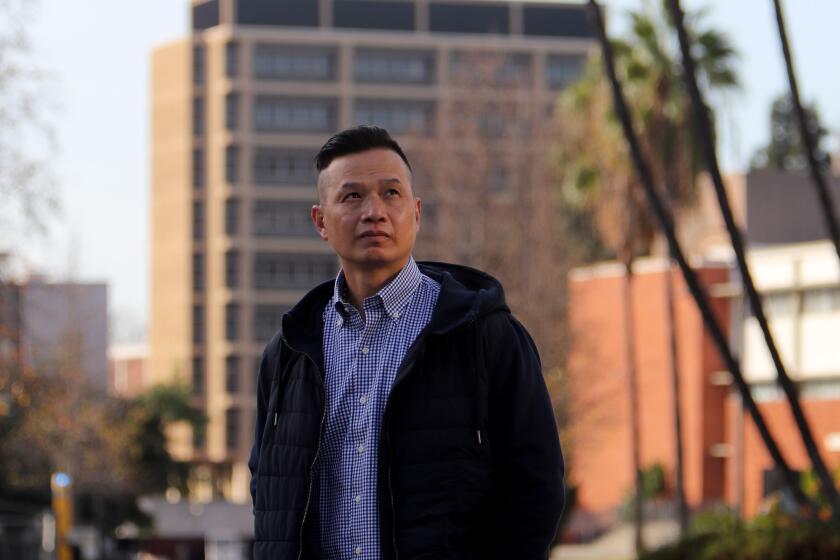O.C. nonprofit aims to help ex-inmates reintegrate amid pandemic

- Share via
As more inmates are released from Orange County jails, they face reentering a community besieged by a deadly virus and an economic crisis.
Securing a job and stable housing as an ex-convict was no easy feat even before the pandemic.
Now, the task is all the more daunting as employment opportunities dwindle and support services that were once provided are suspended.
“A lot of the jobs that people get when they are trying to reenter society are not there, so it’s more difficult for these people to get back on their feet,” said Deputy Public Defender Bobby Waltman. “And if they can’t get back on their feet, they’re back in that cycle of desperation that leads to crime.”
But a new nonprofit aims to help solve this dilemma by connecting youth and adults who have been incarcerated with the treatment, training and employment opportunities they need to reintegrate into society.
The Hub for Integration, Reentry and Employment will work to remove the social, economic and political barriers that ex-convicts and juvenile delinquents face.
“A lot of people just need a second chance,” said Meghan Medlin, founder and chief executive of HIRE. “And if you give them a second chance, they will be successful.”
The nonprofit is looking to unify Orange County community members and service providers to offer referrals and programs to former inmates looking for help.
Medlin said the organization is “hugely needed” because of the county’s high jail population and deficit of available services.
Tin Nguyen, a 48-year-old Vietnamese refugee whose prison sentence had been commuted in 2018, was released from ICE detention in September 2020. Nguyen, his attorneys and an O.C.-based social justice organization talked about his detention and release.
The work is crucial now, as Orange County Sheriff Don Barnes was recently ordered by a judge to reduce the county jail population by half, although he is fighting the order. Hundreds of inmates have already been released since the beginning of the coronavirus pandemic.
“Many of these people, they don’t have a car, they don’t have a phone, they don’t have a computer, and now they need to get a job and get a place to live,” said Waltman, a member of the nonprofit’s board of directors.
“Many of them don’t have family support or their family has kind of given up on them. So we’re hoping that by providing one central hub instead of them having to run all over the county ... we can provide that one place that links them to all of these different areas of their life to get back the stability they need to stay out of trouble.”
Medlin said people will be able to come to HIRE for a number of problems, including treatment for substance abuse, homelessness and training for those who lack the proficiency or technical prowess for holding down a job.
“Our No. 1 issue here in Orange County is housing,” Medlin said. “There’s just a lack of housing. Then when you have people that have certain convictions that aren’t able to even qualify for housing, it’s difficult if you don’t have a home, you know, to be able to even get a job or to get services.”
The fledgling organization launched in early August and has some growing to do.
Medlin said the nonprofit is made up of her and the board of directors. It just received approval to begin pursuing grants and will be holding a fundraiser in the coming months.
The group is sponsored by Charitable Ventures, an O.C. nonprofit that fiscally sponsors local charities.
HIRE has a handful of clients. Medlin has been working with them virtually as the nonprofit doesn’t have a location yet.
“Obviously, once we get funding we want to have an actual community center where people can come for assistance, as well as our collaborative partners can come to offer workshops or resources to people,” she said.
Medlin has been focusing on community development and fostering connections with service providers.
The work is familiar to Medlin, who previously worked to reduce recidivism rates while leading Orange County’s reentry partnership.
Other than Medlin, the board is made up of advocates and community members.
During Waltman’s six years in the Orange County public defender’s office, he’s learned through the experiences of his clients.
“I’ve had a chance to work in homeless court and drug court and have seen how services can really provide stability for my clients and give them a chance to turn it around,” Waltman said. “I just wish all my clients could have that kind of help.”
He continued: “That’s the goal, to try to fill that gap, provide these services and give these people a better shot at getting back on their feet, because they want to. They just need help doing it.”
Brazil writes for Times Community News.
More to Read
Sign up for Essential California
The most important California stories and recommendations in your inbox every morning.
You may occasionally receive promotional content from the Los Angeles Times.












